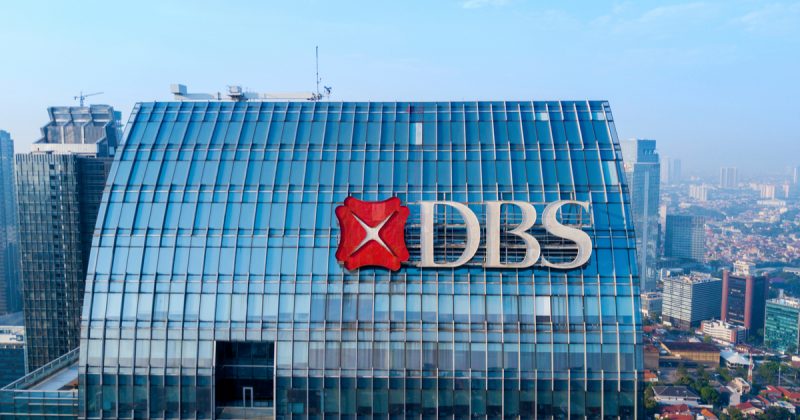
Shutterstock cover by Creativa Images
Singapore’s Largest Commercial Bank Launches Bitcoin Exchange
The bank has retracted the announcement, however, likely due to the extreme social media activity surrounding the news.
A Singapore-based multinational bank with over $400 billion of assets, DBS announced an institutional-grade digital asset exchange, custody, and platform for security token offerings (STOs).
Billion Dollar Bank DBS Launches Crypto Exchange
At the time of writing, DBS has taken down the page with the announcement, which may be attributed to ongoing social media excitement.
https://twitter.com/BarrySilbert/status/1321041672063586305
According to the announcement, the new exchange is regulated by the Monetary Authority of Singapore (MAS). Only financial institutions and professional market makers like DBS Vickers Securities will be allowed to use the platform. They will act as intermediaries for individual clients.
The exchange has a 0.1% fee, but institutions can add additional fees for individuals.
Regarding the security token offerings, DBS claims that small and medium-sized enterprises, along with corporations, can potentially reach a wider investor audience through digital fundraising.
Notably, only qualified investors will be approved to participate once the service is live.
The initial crypto lineup includes Bitcoin, Bitcoin Cash, Ether, and XRP. Trading pairs are against fiat currencies, such as USD, SGD, and JPY. Jack Tao, the CEO of Singapore-based Bitcoin derivatives exchange Phemex, told Crypto Briefing:
“DBS’ recent move is yet another sign of the increasing demand for cryptos by both retail and institutional investors. Their ability to offer exchange services between digital currencies and Singapore dollar (SGD), Hong Kong dollar (HKD), Japanese yen (JPY), and U.S. dollar (USD) will create a solid bridge between fiat and crypto. Because more users will gain access to these assets, we believe the bull run will continue.”
Margin trading isn’t offered at this stage. However, institutions will need to pledge fiat or digital currencies to be able to trade. Trading limits will depend on the size of a pledge.
DBS highlighted that it offers a convenient fiat on-ramp, eliminating the need for stablecoins like USDT. It’s a sensible claim, considering that regulators worldwide are weighing central bank digital currencies (CBDCs) and pushing against stablecoins.
A downside of the bank-backed exchange is that it has a trading schedule and may be inconvenient for those who are used to 24/7 crypto trading. These drawbacks may hamper the platform’s ability to compete with competitors like Binance or Phemex, says Tao. He added:
“Once or if they get officially approved, they may become a great case study/example for both exchanges and regulators. Nevertheless, there are great obstacles such as KYC and AML that must be solved first.”
Overall, the DBS announcement falls in line with the ongoing trend of crypto acceptance among institutions. With giants like PayPal integrating digital currencies into their services, the bull-run indeed appears to be in the first inning.
